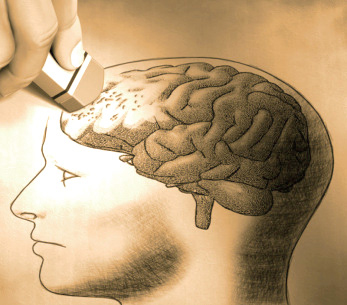Andy Lee
Stubbornness having or showing dogged determination not to change one’s attitude or position on something, especially in spite of good reasons to do so. Not a great attribute to have is it? It’s no wonder calling someone stubborn when they are being stubborn only makes them more stubborn! And yet even though I know this, sometimes I can’t help myself. Is that me being stubborn?
Although not the main focus of this month’s piece, I wanted to highlight the part that having a closed mind plays in what we learn – or don’t learn. A lot of us are fortunate enough to have received some sort of formal education: some stop after school, and some carry on to further education and then graduate from higher education. Usually, the main drivers for educating ourselves or letting ourselves be educated, is so that we are deemed good enough and skilled enough to get picked for the job that we want.
Generally then, we can feel like we’ve made it once we have the job that we want. And we switch from wanting to learn, to thinking we’ve learned everything we need to. This learning trap doesn’t just happen with education, it can happen with anything we apply ourselves to – relationships, jobs, our faith, even hobbies.
I love playing football, but sadly have had to accept that I’m not as good as I used to be. My mind is just as sharp, but my body takes an extra second or two to catch up with what my mind wants it to do. However, I can still compete (in my very humble opinion) with those who are younger, more physically fit and skilful than me. The reason for this is that I have tried to evolve my game to match my physical ability – I’ve learnt how to stay effective playing a different style and in different positions. Contrast this to the energetic and very skilful twenty-something year olds who have bags of ability and potential, but don’t know how to read the game. They don’t evaluate their own game because they think they’re good enough and they don’t listen to feedback. They can be frustrating to play with!
Likewise if we live with, work with, work under or work for someone who is resistant to learning, it makes our lives that much tougher. But enough about others. What about you? If you’re honest with yourself, you’ll accept that no two things are the same, whether that be the job you’re in, the partner you’re with, the church you serve etc. There are always new things to discover.
Whenever we try to learn something new this new thing is measured against what we already know. If we place more weight on what we already know, on our past experience, then it will be harder to learn the new because we stick to the familiar and refuse to explore the uncertain.
Once we lay down our ‘know it all’ attitudes, we then need to consciously lay down our past experiences and what we think we know, in order to more readily receive new information. In effect this means unlearning to learn.
If you’ve just started a new job, be eager to learn with an open mind. Remind yourself that it’s a new environment, new culture, with different ways of working, different teams and different expectations. Leave your preconceptions and assumptions at the door on your way in. The same goes for a new church. Be slow to judge, and refrain from trying to make sense of the new by pigeonholing it into what you find familiar.
I’ll finish with an illustration. Imagine an empty cup. Stubbornness fills the cup to the brim with your opinions and beliefs, leaving no room for anything else to enter. Unlearning is then allowing yourself to empty the cup. You consciously decide to hold lightly your preconceptions, and assumptions about how things are.
Learning is then filling up the cup again with new things drawn from what you’re experiencing and receiving in the present, not from what you have already accumulated in your head. Then repeat.
An intelligent heart acquires knowledge, and the ear of the wise seeks knowledge – Proverbs 18:15
勇於歸零 回到初心
文/Andy Lee
翻譯/啟思
固執——一個人在堅定自己對於某件事物的態度或位置上擁有或表現出的頑強決心,特別是即便有很好的改變理由也堅持如此。這並不是一種好的態度,對嗎?也難怪在一些人固執的時候說他們固執只會讓他們越來越固執!並且,儘管我知道這些道理,有時候我還是不能讓自己少固執一點。是我固執嗎?
雖然這不是本月文章的主要關注點,我還是想提一下封閉的心靈在我們學習(或不學習)中扮演的角色。我們當中很多人都是幸運的:都接受了某種程度的正規教育,一些從學校畢業後就走出校門,而另一些則繼續進入大學深造。通常情況下,教育自己或是讓自己接受教育的源動力是我們被認為不夠好、技術不夠純熟、不能得到自己想要的工作。
而一般來說,我們在得到自己想要的工作時就會感覺自己已經成功了。漸漸地我們的思想模式就變成了︰因想得到而去學習,學習了就認為自己已經學會了一切。這種「學習的陷阱」不單會出現在上學時,還會出現在一切和我們的有關的事物中——人際關係、工作、信仰,甚至是愛好。
我喜歡踢足球,但最近卻不得不接受一個事實:我的球技已經不復當年了。我的頭腦還是一樣靈活,但身體卻要多花上一兩秒才能領會到頭腦下達的指令。然而,我仍可以和那些更年輕、身體和技巧都更強的人相抗衡(我很謙虛地說)。這一原因就在於我會試著把自己的每一場比賽都和自己的體能匹配起來——我學到了如何以不同的風格並在不同的位置有效競賽。而那些活力充沛技巧精練的20來歲年輕人卻不一樣,他們有的是能力和潛質,但仍不知怎樣去分析一場比賽。他們不會回顧評估自己的比賽表現,因為他們認為自己已經踢得很好,無需任何回饋。和這些人一起玩可真是掃興!
同樣地,如果我們和那些不願意學習的人在一起,無論是家人、室友、上司或下屬,這都是艱難的。但說其他人已說夠了,你自己又怎樣呢?如果你對自己坦誠,你就會承認:在這世界上沒有兩件事物是完全一樣的,無論是你的工作、你的夥伴,還是你服侍的教會……總有一些新事物等待我們去發現。
當我們在學習新事物時,我們會把新的知識與我們已知的作對比衡量。如果我們對已知的東西和過去的經驗看得越重,就越難去學習新事物,因為我們會固守熟悉,拒絕去探索未知。
而一旦我們放下了「什麼都懂」的態度,我們就需要有意識地放下我們過去的經驗和已知的事情,這樣才能更容易接受新資訊。實際上,這就是「歸零」的心態。
如果你很快就要開始新的工作,那就以開放的心態期待學到更多東西。提醒自己:你將面對新環境、新文化、不同的工作方式、不同的團隊和不同的預期。把你的先入之見和假想留在進來的那扇門外。參加新的教會時也同樣。別急著作出判斷,也別想著要把新東西對號入座到你所熟悉的東西上。
在文末,讓我來舉個例子。想像一隻空杯子—固執會和你的想法與信念一同裝滿杯子,不給其他東西留有任何空間。而「歸零」卻會讓你倒空杯子,即有意識地決定放低自己對事物的先入之見和假設。「學習」隨後會再次填滿這杯子,此時杯中是你經歷現在的事情後汲取收穫的新觀點,而不是你腦海中已有事物的積累。隨後重複這一過程。
「聰明人的心得知識,智慧人的耳求知識」——《箴言》十八章5節



